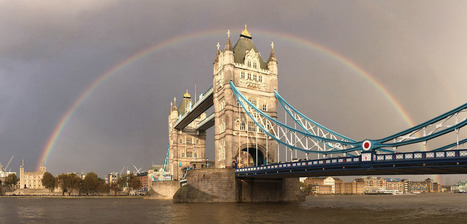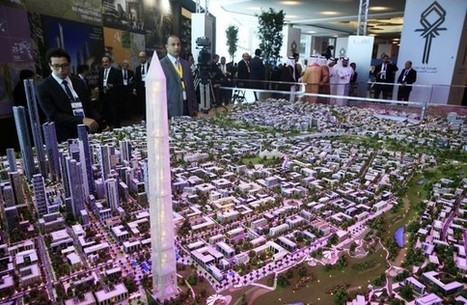Beyond the stunning act that has become Britain’s vote to leave the European Union lies a deeper message: Democracy is not destiny, but devolution. Ceaseless entropy — the second law of thermodynamics — applies to politics as well. The more countries democratize, the more local populations seek greater self-rule.
Get Started for FREE
Sign up with Facebook Sign up with X
I don't have a Facebook or a X account
 Your new post is loading... Your new post is loading...
 Your new post is loading... Your new post is loading...
Norka McAlister's curator insight,
March 15, 2015 8:00 PM
I definitely think that it would. It is impressive to see how a urban planning affected the land designed by the refuges. Within a few years through satellite imaging, we can witness and appreciate how the Zaatarie refugee campus went from a few refugees to a total urbanized area receiving and distributed more than 85,000 refuges in the area. Urban planning plays a big role in regards to how display all populations. However, we have to take in consideration that when a massive population in one area is displayed, urban area is also relevant in terms of disciplines, public healthy, collaboration to live under a community rules. On other hand, natural disasters and destruction by war can wipe out entire cities within seconds. The satellite images were able to show the destruction that took place in the Syrian city of Hamas after natural diasters devastated the region and the wartorn afternmath of Gaza city. Natural disasters and war trigger a massive migration of refugees in search for better a life and opportunity.
Max Minard's curator insight,
March 21, 2015 9:26 PM
This report refers to the Zaatari refugee camp in Jordan which is experiencing rapid growth in population with 85,000 citizens and is even starting to look as a "city built form scratch". The reason geographers think that satellite imagery can save refugee lives is because it allows them to view areas of the camp in which they are unable to reach on ground. This information will help health workers pinpoint these certain hidden areas and tend to the people who are there. This use of satellite imagery centers around the camps rapid growth in population, making it quite a challenge to scale on ground. |

Lydia Tsao's curator insight,
May 26, 2015 12:01 AM
I think it is really interesting that Egypt is thinking about building a completely brand new city. It just shows how much risk the country is willing to take on this very lucrative project that will cost more than sixth of the country's GDP. If the country succeeds, then it will face an amazing influx of capital and resources that is unprecedented. If the country fails, then it will be one of the worst financial investments to plague the country and will haunt the country for decades to come. Distrust in government fiscal responsibility will decline tremendously. This article demonstrates the forces that are compelling the Egyptian government to drive urbanization in undeveloped areas. Desperate times call for desperate measures.
Evan Margiotta's curator insight,
May 26, 2015 7:25 PM
This announcement of a new capital city, announced in March of 2015, acts as a part of a inclusive plan aimed at revitalizing the economy and influence of Egypt. In a goal to escape the congestion, pollution, and sprawl of Cairo, the Egypt government has it aims at 45 billion dollar project. If/when completed the new city will aim at sustainable development and include 2,000 new schools, a new massive international airport, and be about the size of Singapore. This situation applies to many principles in human geography. The problems created by overpopulation are evident in Cairo, and it is necessary for this new capital to follow a system of sustainable development to avoid the same problems. 
Michael Amberg's curator insight,
May 26, 2015 10:53 PM
This shows the development of the world and how now "poorer" countries are beginning to plan out big cities of their own. |














In this article, Parag Khanna argues exactly what the title suggests, "London should secede from the United Kingdom". In light of the UK's decision to leave the European Union, Khanna discusses that "Londoners... voted by a wide majority to 'remain' in the EU" and suggests that many Londoners have lost their sense of British Pride after the secession. Though it is mentioned that the city "can't and won't" leave the country, the exit from the EU directly impacts London's economy because "immigrants are essential for the city’s financial and education sectors". Without the immigrants, the city's finances will not only be in jeopardy, but its connection between foreign places will be impacted as well.